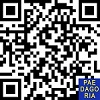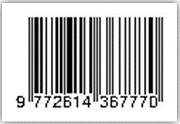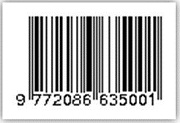BUILDING THE YOUNG LEARNERS ENGLISH VOCABULARY BY USING THE SMART CARD AT MBS SANG SURYA
Abstract
Abstract: Smart card as a medium of teaching language is regarded as central elements of the approach because it can be used as media to attract the young learners interest in learning language especially English language. The writer try to adopt this media in the classroom, especially by using a smart card to make the lesson more easier and interesting for the young learners to build their vocabulary in english. In relation, the purpose of this research is to investigate does the use of smart card has effect in building vocabulary in english to MBS DayCare learners. The researcher applied true exprimental research design as the methodology with 20 young learners as the population and all of them taken as a sample by using rubric and t-test formula theory according Hughes. The researcher collect the data by using testing method. The result of this research showed that mean score of experimental group 8 and mean score of control group 7. Based on t-test, it showed that t- value 3,782 and after cosulting to t-table, the t-value was higher than t-table. The smart card in vocabulary learning process is more effective to enrich the learners’ vocabulary, this can be seen from the results of test score that the experimental class which was given treatment using smart card media got higher score than control class without taught by used smart card media. The writer concluded that smart card has an effect in building vocabulary in english at Daycare learners in Muhammadiyah Boarding School (MBS) Sang Surya.
Abstrak: Tujuan dari penelitian ini adalah untuk menyelidiki apakah penggunaan kartu pintar berpengaruh dalam membangun kosa kata dalam bahasa Inggris untuk pelajar MBS DayCare. Peneliti menerapkan desain penelitian exprimental sejati sebagai metodologi dengan populasi 20 siswa sebagai populasi dan semuanya diambil sebagai sampel dengan menggunakan teori rumus rubrik dan uji-t menurut Hughes. Peneliti mengumpulkan data dengan menggunakan metode test. Hasil penelitian ini menunjukkan bahwa skor rata-rata kelompok eksperimen adalah 8 dan skor rata-rata kelompok kontrol adalah 7. Berdasarkan uji-t, menunjukkan bahwa nilai t-hitung sebesar 3,782 dan setelah korelasikan dengan t-tabel, t-hitung lebih tinggi daripada t-tabel. Kartu pintar dalam proses pembelajaran kosakata lebih efektif untuk memperkaya kosakata peserta didik, hal ini dapat dilihat dari hasil skor tes bahwa kelas eksperimen yang diberi perlakuan menggunakan media kartu pintar mendapat skor lebih tinggi daripada kelas kontrol tanpa diajar dengan menggunakan media kartu pintar. Penulis menyimpulkan bahwa kartu pintar berpengaruh dalam membangun kosa kata dalam bahasa Inggris.
Keywords
Full Text:
PDFReferences
Ali, S. (2017). The Students’ Interest on the Use of Vocabulary Self-Collection Strategy in Learning English Vocabulary. Ethical Lingua: Journal of Language Teaching and Literature, 4(2), 165–175. https://doi.org/10.30605/ethicallingua.v4i2.630
Asgari, M. (2011). Teacher’s using current issues of interest on students vocabulary learning. Australian Journal of Basic and Applied Sciences, 5(9), 1901–1907.
Bai, Z. (2018). An Analysis of English Vocabulary Learning Strategies. Journal of Language Teaching and Research, 9(4), 849. https://doi.org/10.17507/jltr.0904.24
Liu, P. E., & Wu, W. V. (2016). Exploring the Effectiveness of LINE for EFL Vocabulary and Reading. International Journal of Learning, Teaching and Educational Research, 15(13), 71–83.
Maskor, Z. M., & Baharudin, H. (2016). Receptive Vocabulary Knowledge or Productive Vocabulary Knowledge in Writing Skill, Which One Important? International Journal of Academic Research in Business and Social Sciences, 6(11). https://doi.org/10.6007/ijarbss/v6-i11/2395
Sugiyono. (2012). Metode Penelitian Kuantitatif, Kualitatif dan R & D.Bandung: Alfabeta. https://doi.org/10.1017/CBO9781107415324.004
Sugiyono. (2016a). Metode Penelitian Kuantitatif, Kualitatif dan Kombinasi (Mixed Methods). Bandung: Alfabeta. https://doi.org/Doi 10.1016/J.Datak.2004.11.010
Sugiyono. (2016b). Metodologi Penelitian Kuantitatif, Kualitatif, dan R&D. In CV Alfabeta. https://doi.org/https://doi.org/10.3929/ethz-b-000238666
Suharsimi, A. (2013). Prosedur Penelitian : Suatu Pendekatan Praktik (Edisi Revisi). Jakarta: Rineka Cipta.
https://doi.org/10.1017/CBO9781107415324.004
Tuma, et all. (2010). Teaching students to become self-reflective practitioners. Therapeutic Recreation Journal, 46(4), 303–309.
DOI: https://doi.org/10.31764/paedagoria.v10i2.1085
Refbacks
- There are currently no refbacks.
Copyright (c) 2019 Universitas Muhammadiyah Mataram

This work is licensed under a Creative Commons Attribution-ShareAlike 4.0 International License.
Paedagoria : Jurnal Kajian, Penelitian dan Pengembangan Kependidikan
Fakultas Keguruan & Ilmu Pendidikan | Universitas Muhammadiyah Mataram.
_______________________________________________
 | Paedagoria : Jurnal Kajian, Penelitian dan Pengembangan Kependidikan |
______________________________________________
CURRENT INDEXING:
EDITORIAL OFFICE:


















